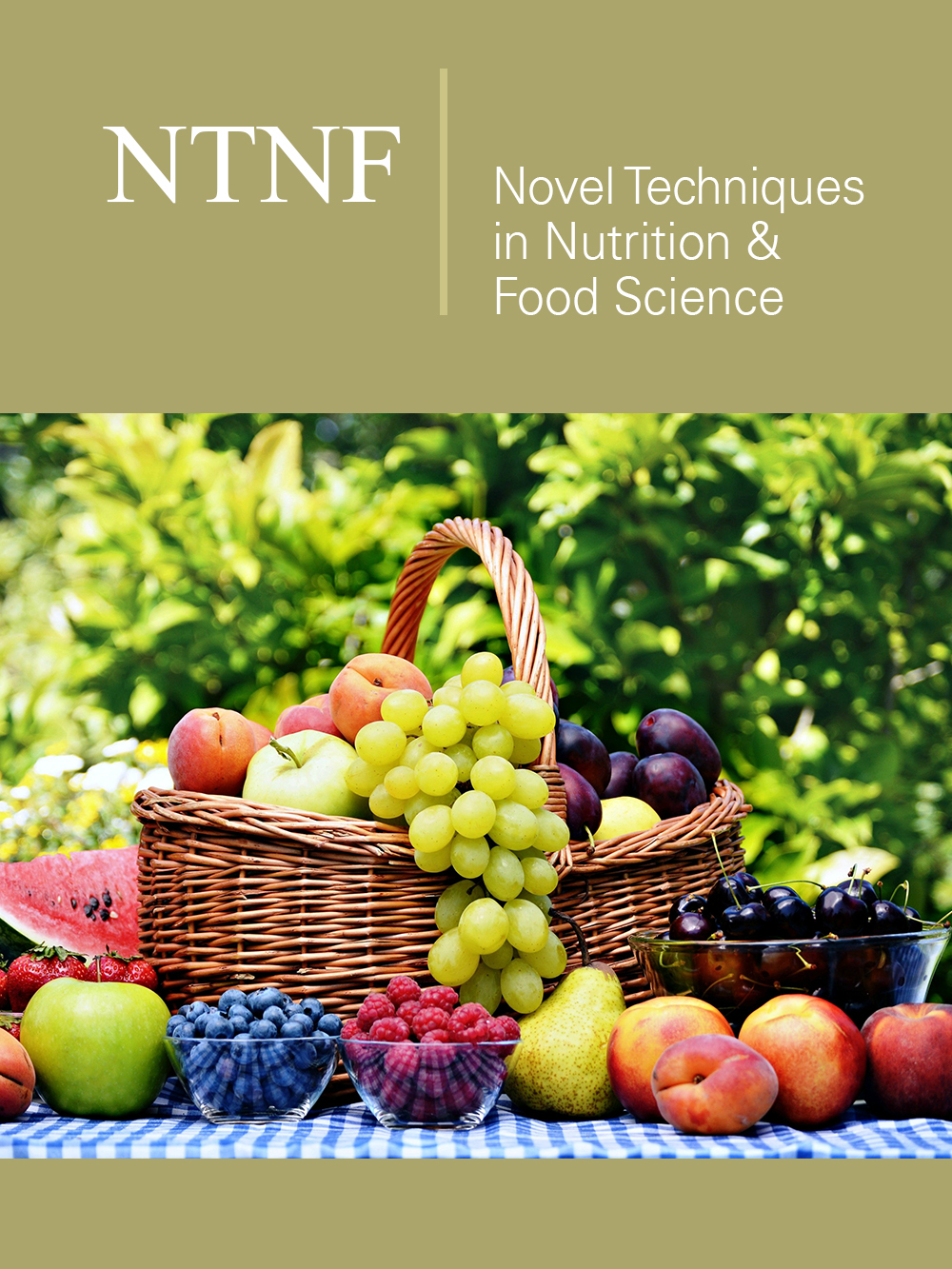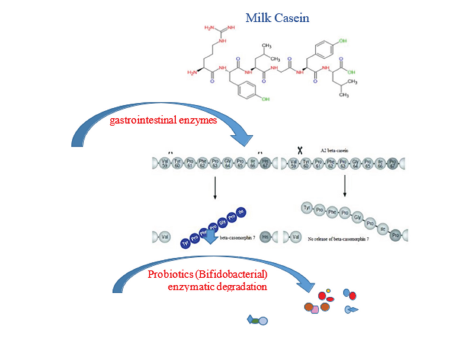- Submissions

Abstract
Novel Techniques in Nutrition and Food Science
Milk Casein Types, Human Health and Probiotic Bacteria
-
Open or CloseNecibe Canan USTA*
Biology Department, Art & Science Faculty, Gaziosmanpasa University, Turkiye
*Corresponding author:Necibe Canan USTA, Biology Department, Art and Science Faculty, Gaziosmanpasa University, Turkiye
Submission: September 15, 2025;Published: November 06, 2025

Volume8 Issue 4 November 06, 2025
Abstract
There have globally been 30-40fold increases in the prevalence of some chronic diseases like cardiovascular disease, type 1 diabets, undiagnosed gastrointestinal conditions, some disordered nervous, endocrine and immune system diseases. Recently, a relationship between disease risk and consumption of a specific bovine β-casein fraction, A1 or A2 genetic variants, has been identified. Populations consuming milk containing high levels of β-casein A1 variant, due to the milk-derived peptides, β-casomorphins (BCMs), have a higher incidence of type 1 diabetes, severe symptoms of autism and schizophrenia, endocrine, immune system, allergys and gastrointestinal diseases. It was observed in the studies that, BCM7 permeates the intestinal brush border barrier and may induce several biological effects through the μ-opioid receptors (MORs). The mechanism of action generally begins with β-casein A1 and its related forms that produce a bioactive opioid peptide, β-casomorphin-7 (β-CM-7) during digestion. On the other hand, the researchers have postulated that patients with those systemic disorders drive clinical benefit when consume cow milk having A2 allelic variant. New adjustments to the non-hybrid animal milk supply can be readily made, indeed. In addition, actually, Bifidobacteria and lactic acid bacteria, are the ones emphasized as effective approaches. Intestinal bacterial flora replacement can be used to bypass the negative casein effects in the gut, whether by natural food consumption or in a supplementary diet. The probiotic bacterial species have capability of enzymatic hydrolysis of A1 casein derived β-casomorphins, (BCMs) molecules. On the other hand, every step investigating the role of milk casein types and Further research would always be needed for new probiotic usage and preventive measures, for blocking its adverse effects.
Graphical Abstract
Figure 1:

Highlights
a) Bovine milk casein types differ with animal breeds.
b) βeta A1 casein proteins have been related to some systemic diseases in human.
c) The amino acid shift, (prolin to histidine at residue 67) in the mature A1 casein protein yielding bioactive β-casomorphin-7, β-CM-7, was reported
to play role in some systemic disfunctions.
d) Generally local breeds (high interior genetic homogeneity) contain more A2 allelic casein in their milk.
e) Some Lactobacillus spp and Bifidobacteria spp seem to prevent β-casomorphin-7 protein activities in the human gut in some ways.
 a Creative Commons Attribution 4.0 International License. Based on a work at www.crimsonpublishers.com.
Best viewed in
a Creative Commons Attribution 4.0 International License. Based on a work at www.crimsonpublishers.com.
Best viewed in 







.jpg)






























 Editorial Board Registrations
Editorial Board Registrations Submit your Article
Submit your Article Refer a Friend
Refer a Friend Advertise With Us
Advertise With Us
.jpg)






.jpg)














.bmp)
.jpg)
.png)
.jpg)










.jpg)






.png)

.png)



.png)






